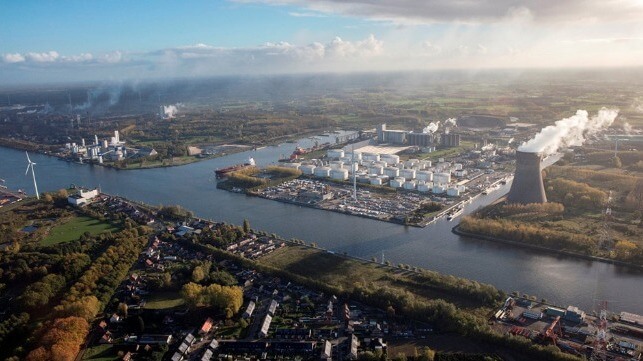Dutch Utility Gets Ready to Distribute Hydrogen in North Sea Port Area

Dutch state-owned utility company Gasunie has started the construction of a national hydrogen network that forms part of a grand plan by the Netherlands to become a European hub for the zero-carbon energy source.
Two years after the government unveiled the country’s strategy on green hydrogen - which will see it scale up the installed electrolysis capacity to 3 to 4 GW by 2030 - Gasunie announced that it has embarked on the implementation of a network of hydrogen pipelines that will link up the carbon-free hydrogen supply and demand. Approximately 85 percent of the national network will consist of recycled natural gas pipelines.
Gasunie will develop and operate this shoreside grid. Due to the expected growth in offshore hydrogen production in the North Sea, the government will also decide if the state utility can also fulfill the role of grid operator at sea.
“We believe that hydrogen will play a major role as the energy carrier of the future. We now start the construction of the public hydrogen network in the Netherlands, which will be a great boost for the transition towards a more sustainable energy system,” said Han Fennema, Gasunie CEO.
The hydrogen network is expected to connect the country’s seaports with the large industrial clusters, storage locations and neighboring countries like Germany and Belgium, facilitating the growth of the hydrogen market in Europe.
In May, Gasunie entered into a partnership with Belgian company Fluxys to work on the development of national hydrogen networks between the two countries. The networks would be interconnected in the North Sea Port area, which stretches from Ghent to Vlissingen and Terneuzen. It will be designed to supply hydrogen to companies in the 40-mile-long port area.
In April, Gasunie, Rotterdam-based bulk products supplier HES International (HES) and Dutch storage specialist Vopak signed a deal to jointly develop an import terminal for green ammonia as a hydrogen carrier. Ammonia can be used as-is or can be stripped down into nitrogen and hydrogen, delivering useful H2 without the difficulty of transporting it by sea.

that matters most
Get the latest maritime news delivered to your inbox daily.
The Netherlands wants to leverage its substantial offshore wind potential in order to scale up carbon-free hydrogen for use in industrial production, transport fuel and energy storage, in line with its ambitions to attain net zero status by 2050.
According to Gasunie, industries are currently responsible for about 25 percent of national CO2 emissions. The use of hydrogen as feedstock and fuel can reduce emissions in industries and make a major contribution to the Netherlands' climate targets.
